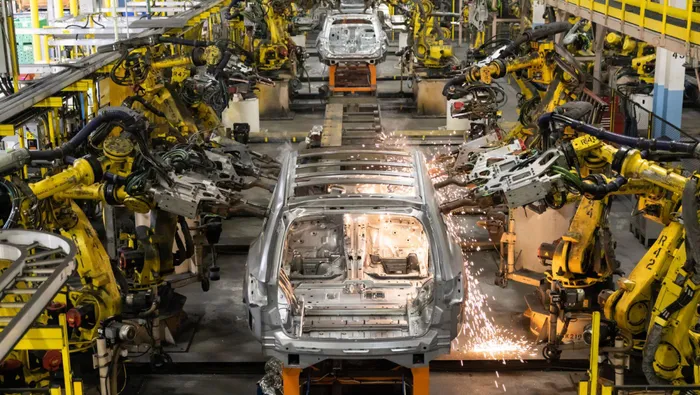
Industry leaders have long warned about deindustrialisation in the local motor industry.
Image: File picture / Stellantis
South Africa’s vehicle manufacturing industry relies heavily on exports to the European Union, but with this region poised to ban the sale of new internal combustion engined vehicles in 2035, the sector remains in peril unless it gains export contracts for electric vehicles.
South Africa’s Minister of Trade, Industry and Competition, Parks Tau, has joined the chorus of industry heavyweights calling for South Africa’s industry to adapt to this fundamental shift in the global automotive landscape, and embrace new energy vehicles (NEVs).
Addressing industry stakeholders at the 2025 South African Auto Week, hosted by Naamsa in Gqeberha on Friday, Tau reiterated that the future competitiveness of the auto sector hinged on rapidly embracing NEVs.
“Global markets are rapidly transitioning away from internal combustion engines. The United Kingdom and the European Union, which together account for almost half of South Africa’s vehicle exports, have committed to ending the sale of new fossil-fuel vehicles by 2035. If we do not adapt, we risk losing these key export markets,” he said.
While government has amended the Automotive Production and Development Programme (APDP2) to provide a 150% tax deduction for EV and hydrogen vehicle production investments from 2026, the government has done little, if nothing, to encourage local consumers to adopt battery vehicles. Not only are incentives non-existent, although President Cyril Ramaphosa has previously hinted that these may materialise in future, but currently EVs face a 25% import duty in South Africa, which is steeper than that of ICE vehicles.
VWSA’s CEO, Martina Biene, has previously stated that there is little point in producing electric vehicles locally unless there is also a significant local demand for them. She said from the end of this decade, VWSA will no longer be a base for exporting vehicles into Europe.
Although exports into Africa are touted as a potential alternative, current sales volumes on the continent are minuscule compared to Europe.
Nonetheless, government believes the African free trade agreement (AfCFTA) holds much potential. In 2024 SA’s vehicle exports into the continent totalled R48.1 billion, an increase of 12.4% over 2023.
“The AfCFTA is a game-changer. It enables duty-free access beyond the Southern African Development Community (SADC), it supports regional value chains, and encourages infrastructure investment. It also opens doors for collaboration in battery manufacturing and mineral beneficiation across Africa,” Tau said.
The minister also highlighted the need to move beyond the mere export of South Africa’s minerals as raw materials.
“Our country and region hosts some of the world’s largest deposits of platinum, manganese, nickel, cobalt, and rare earth minerals. This is a once-in-a-generation opportunity to move beyond exporting raw materials and instead beneficiate locally, producing battery-grade inputs and building a competitive battery manufacturing value chain here in Africa,” the minister said.
He confirmed that government, in partnership with industry and global institutions such as the World Bank, has finalised a National Critical Minerals Strategy to secure supply chains for the domestic NEV industry.
This move also aims to attract investment into gigafactories, and support the development of hubs for battery assembly, recycling, and research.
“This is not just an industrial project. It is about positioning South Africa as a maker of value, not a taker, creating skilled jobs, spurring innovation, and deepening Africa’s role in the global clean energy transition,” Tau added.
IOL Motoring
Related Topics: